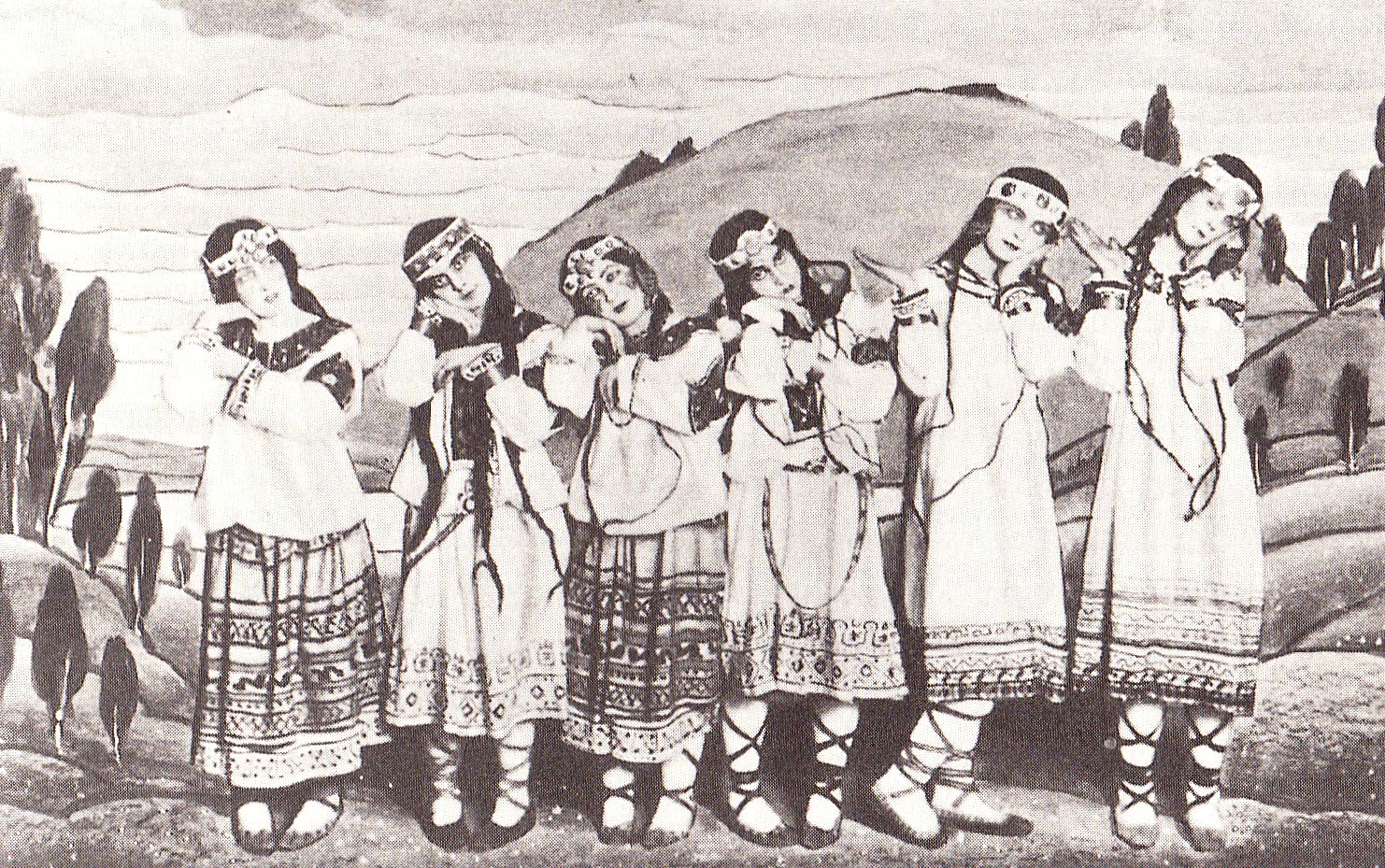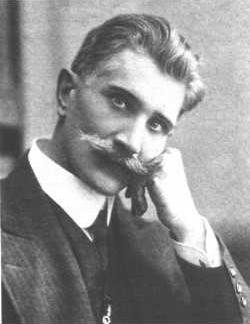|
Polish Women's League
Polish Women's League (Polish: Liga Kobiet Polskich) is a Polish women's organisation. Two organizations with the name Women's League were founded in 1913 and 1915 respectively, which united to become a single national Women's League, active from 1918–1939. The Women's League was re-founded in 2001. First Polish Women's League Polish Women's League originated in two separate women's organisations, with similar names: the ''League of Polish Women of the War Ambulance'' (Polish: Liga Kobiet Polskich Pogotowia Wojennego), founded in 1913, and the ''League of Women in Galicia and Silesia'' (Polish: Liga Kobiet Galicji i Śląska), founded in 1915, both commonly called "Liga Kobiet" or Women's League. The Women's League of 1913 was founded by Izabela Moszczeńska, Jadwigi Marcinowskiej, Teresy Ciszkiewiczowej and Heleny Ceysingerówny in Warsaw, which was then the Russian part of Poland. It worked to unite Polish women for the nation's independence. In 1914–1916, it created bra ... [...More Info...] [...Related Items...] OR: [Wikipedia] [Google] [Baidu] |
Izabela Moszczeńska
Izabela is a village in the administrative district of Gmina Mrocza, within Nakło County, Kuyavian-Pomeranian Voivodeship, in north-central Poland. References Villages in Nakło County, Izabela {{Nakło-geo-stub ... [...More Info...] [...Related Items...] OR: [Wikipedia] [Google] [Baidu] |
Interwar Period
In the history of the 20th century, the interwar period lasted from 11 November 1918 to 1 September 1939 (20 years, 9 months, 21 days), the end of the World War I, First World War to the beginning of the World War II, Second World War. The interwar period was relatively short, yet featured many significant social, political, and economic changes throughout the world. Petroleum-based energy production and associated mechanisation led to the prosperous Roaring Twenties, a time of both social mobility and economic mobility for the middle class. Automobiles, electric lighting, radio, and more became common among populations in the developed world. The indulgences of the era subsequently were followed by the Great Depression, an unprecedented worldwide economic downturn that severely damaged many of the world's largest economies. Politically, the era coincided with the rise of communism, starting in Russia with the October Revolution and Russian Civil War, at the end of World War I ... [...More Info...] [...Related Items...] OR: [Wikipedia] [Google] [Baidu] |
1913 Establishments In Poland
Events January * January 5 – First Balkan War: Battle of Lemnos (1913), Battle of Lemnos – Greek admiral Pavlos Kountouriotis forces the Turkish fleet to retreat to its base within the Dardanelles, from which it will not venture for the rest of the war. * January 13 – Edward Carson founds the (first) Ulster Volunteers, Ulster Volunteer Force, by unifying several existing Ulster loyalism, loyalist militias to resist home rule for Ireland. * January 23 – 1913 Ottoman coup d'état: Ismail Enver comes to power. * January – Stalin (whose first article using this name is published this month) travels to Vienna to carry out research. Until he leaves on February 16 the city is home simultaneously to him, Hitler, Trotsky and Josip Broz Tito, Tito alongside Alban Berg, Berg, Freud and Jung and Ludwig Wittgenstein, Ludwig and Paul Wittgenstein. February * February 1 – New York City's Grand Central Terminal, having been rebuilt, reopens as the ... [...More Info...] [...Related Items...] OR: [Wikipedia] [Google] [Baidu] |
Feminist Organisations In Poland
Feminism is a range of socio-political movements and ideologies that aim to define and establish the political, economic, personal, and social equality of the sexes. Feminism incorporates the position that society prioritizes the male point of view and that women are treated unjustly in these societies. Efforts to change this include fighting against gender stereotypes and improving educational, professional, and interpersonal opportunities and outcomes for women. Feminist movements have campaigned and continue to campaign for women's rights, including the right to vote, run for public office, work, earn equal pay, own property, receive education, enter contracts, have equal rights within marriage, and maternity leave. Feminists have also worked to ensure access to contraception, legal abortions, and social integration and to protect women and girls from rape, sexual harassment, and domestic violence. Changes in female dress standards and acceptable physical activit ... [...More Info...] [...Related Items...] OR: [Wikipedia] [Google] [Baidu] |
1913 In Poland
Events January * January 5 – First Balkan War: Battle of Lemnos (1913), Battle of Lemnos – Greek admiral Pavlos Kountouriotis forces the Turkish fleet to retreat to its base within the Dardanelles, from which it will not venture for the rest of the war. * January 13 – Edward Carson founds the (first) Ulster Volunteers, Ulster Volunteer Force, by unifying several existing Ulster loyalism, loyalist militias to resist home rule for Ireland. * January 23 – 1913 Ottoman coup d'état: Ismail Enver comes to power. * January – Stalin (whose first article using this name is published this month) travels to Vienna to carry out research. Until he leaves on February 16 the city is home simultaneously to him, Hitler, Trotsky and Josip Broz Tito, Tito alongside Alban Berg, Berg, Freud and Jung and Ludwig Wittgenstein, Ludwig and Paul Wittgenstein. February * February 1 – New York City's Grand Central Terminal, having been rebuilt, reopens as the ... [...More Info...] [...Related Items...] OR: [Wikipedia] [Google] [Baidu] |
League Of Polish Women
Liga Kobiet Polskich (League of Polish Women, LPW) was a state women's organization in Communist Poland, founded in 1945. It was a state organization and a branch of the Communist Party. It succeeded a Pre-war organisation founded in 1913 with a similar name, called the Liga Kobiet Polskich (Polish Women's League Polish Women's League (Polish: Liga Kobiet Polskich) is a Polish women's organisation. Two organizations with the name Women's League were founded in 1913 and 1915 respectively, which united to become a single national Women's League, active from ...). Its purpose was to mobilise women in the political ideology of the state, as well as to enforce the party's policy within gender roles and women's rights. It played an important role in the life of women in the state during its existence. In 1989, it was dissolved and transformed into a new organisation under the name Democratic Union of Women (LK). Janet K. Boles, Diane Long Hoevele Historical Dictionary of Feminism' ... [...More Info...] [...Related Items...] OR: [Wikipedia] [Google] [Baidu] |
Zofia Daszyńska-Golińska
Zofia Emilia Daszyńska-Golińska or Zofia Golińska, née Zofia Poznańska (6 August 1866 – 11 February 1934) was a Polish socialist politician, suffragist and professor. She was an early female senator in Poland. Life Daszyńska-Golińska was born in Warsaw in 1866. Her father and her mother came from educated families. She became interested in social issues and science and after studying at the Warsaw government school she went to Zurich. In Switzerland she studied philosophy, history, politics, and economics.Sophia Daszyńska-Golińska (1866-1934) retrieved April 2014 She married the political activist Felix Daszyński in Switzerland, but the marriage ended when her husband died after two years of tuberculosis. Her brother-in-law, |
Dorota Kłuszyńska
Dorota (Dora) Kłuszyńska, née Pilcer (1 January 1876 – 22 November 1952), was a Polish socialist politician, activist and feminist. She was a senator during the first, second and third term in 1925–1935, deputy to the Legislative Sejm and the Seym of the People's Republic of Poland in the first term in the years 1947–1952. Biography She was born in Tarnów to a Jewish family as Dora Pilcer, daughter of Ignacy Pilcer and Barbara. She graduated from the folk school and then from the faculty school in Tarnów. In the years 1893–1895 she was a student at the Faculty of Economics of the University of Vienna. In 1896, she married Henryk Kłuszyński, a doctor and a socialist activist. In 1900 she joined the Polish Social Democratic Party of Galicia, and in 1911–1919 she was a member of the board and the Central Executive Committee of the party. She organized and spread the socialist women's movement in Poland. She was the editor of ''Głos Kobiet'' (1907–1914). In 1908, sh ... [...More Info...] [...Related Items...] OR: [Wikipedia] [Google] [Baidu] |
Zofia Moraczewska
Zofia Moraczewska, née Gostkowska (4 July 1873 – 16 November 1958) was a Polish politician and women's rights activist. Life Zofia Moraczewska was born of 4 July 1873 in Czernowitz, Duchy of Bukovina, Austro-Hungarian Empire (now Chernivtsi, Ukraine) and graduated from the Teacher's Seminary in Lemberg, the capital of the Kingdom of Galicia and Lodomeria in the Austro-Hungarian Empire (now Lviv, Ukraine), in 1893. She married Jędrzej Moraczewski three years later and joined the Social Democratic Party of Galicia ( pl, Galicyjska Partia Socjaldemokratyczna (GPS) or pl, Socjaldemokratyczna Partia Galicji) that same year. They had four children between 1901 and 1907, although the youngest did not survive infancy. Her husband was elected to the House of Deputies of the Imperial Council in 1907, representing Stryj (now Stryi, Ukraine), and became the first Prime Minister of the Second Polish Republic for several months in 1918–19. Moraczewska was elected a member of the Sej ... [...More Info...] [...Related Items...] OR: [Wikipedia] [Google] [Baidu] |
Józef Piłsudski
Józef Klemens Piłsudski (; 5 December 1867 – 12 May 1935) was a Polish statesman who served as the Naczelnik państwa, Chief of State (1918–1922) and Marshal of Poland, First Marshal of Second Polish Republic, Poland (from 1920). He was considered the ''de facto'' leader (1926–35) of the Second Polish Republic as the Ministry of National Defence (Poland), Minister of Military Affairs. After World War I, he held increasing dominance in Politics of Poland, Polish politics and was an active player in international diplomacy. He is viewed as a father of the Second Polish Republic re-established in 1918, 123 years after the final Partitions of Poland, Partition of Poland in 1795. Seeing himself as a descendant of the culture and traditions of the Polish–Lithuanian Commonwealth, Piłsudski believed in a multi-ethnic Poland—"a home of nations" including indigenous ethnic and religious minorities. Early in his political career, Piłsudski became a leader of the Polish Socia ... [...More Info...] [...Related Items...] OR: [Wikipedia] [Google] [Baidu] |
Provisional People's Government Of The Republic Of Poland
The Provisional People's Government of the Republic of Poland ( pl, Tymczasowy Rząd Ludowy Republiki Polskiej), also known as the Government of Ignacy Daszyński, was established on 7 November 1918 in Lublin, Austrian Galicia, as one of the precursors of Poland's sovereignty following World War I. It proclaimed the creation of a constitutional republic with the right to parliamentary elections, nationalization of key industries, as well as social, labour, and land reforms. Prominent personalities of the provisional government included Stanisław Thugutt as Minister of Internal Affairs, Tomasz Arciszewski as Minister of Labour, as well as Col. Edward Rydz-Śmigły as the Minister of War and Supreme Commander of the Polish Armed Forces. Ignacy Daszyński became Prime Minister. The Provisional Government dissolved itself after several days when Józef Piłsudski became Head of State (''Naczelnik Państwa'') on 14 November 1918 in Warsaw. History On 2 October 1918 Polish members of ... [...More Info...] [...Related Items...] OR: [Wikipedia] [Google] [Baidu] |





